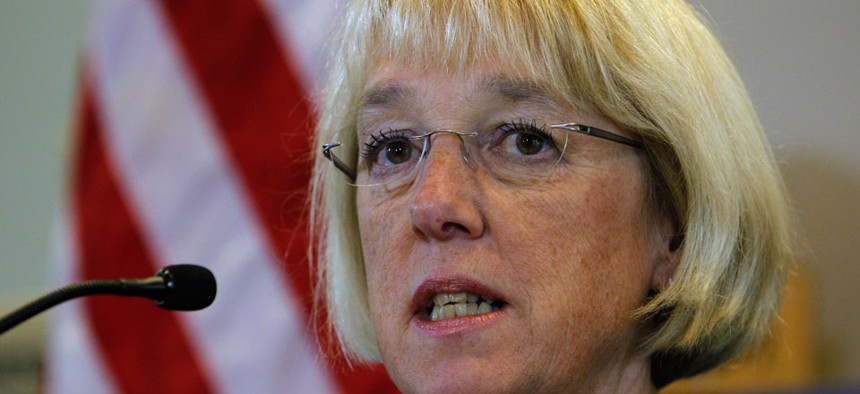Expanding Infertility Treatments for Wounded Warriors Carries $578M Price Tag
CBO projects bill would cost the government hundreds of millions between 2014 and 2018.
Legislation expanding infertility treatments for wounded veterans and their spouses would cost the government $578 million over the next four years, according to a new estimate from the nonpartisan Congressional Budget Office.
The bill, sponsored by Sen. Patty Murray, D-Wash., would require the Veterans Affairs Department to cover in vitro fertilization and other assisted reproductive technology procedures for injured veterans, spouses and surrogates. It also would provide the department with the authority to coordinate infertility counseling and treatment for the spouses and surrogates of veterans who have difficulty fathering children because of a service-connected disability. Other measures would allow VA to pay adoption costs for severely wounded vets and permanently extend existing pilot programs that provide child care for certain vets who use VA medical facilities.
CBO’s cost estimate is from 2014 through 2018, if the legislation is enacted. The costs include the coverage of additional infertility treatments as well as services for resulting pregnancies.
The Senate last year passed similar legislation that Murray shepherded, but it failed in the House. The Senate Veterans’ Affairs Committee approved the 2013 Women Veterans and Other Health Care Improvements Act in July. “There is absolutely no reason that this bill should not move quickly to the president’s desk,” Murray said in a statement. “This is about giving veterans who have sacrificed everything, every option we have to help them fulfill the simple dream of starting a family. It says that we are not turning our back on the catastrophic reproductive wounds that have become a signature of these wars.”
Murray’s colleague Rep. Rick Larsen, D-Wash., is sponsoring the legislation in the House, where it’s currently in subcommittee.
VA currently provides vets with limited assistance for infertility treatments and covers the cost for delivery and newborn care for eligible veterans. CBO estimated that about 3,500 eligible female vets each year would take advantage of the expanded infertility treatments available, with a cost of about $16,000 per user in 2014 and $57 million once the program was fully implemented in 2016. The office estimated the cost of each pregnancy would be about $55,000 in 2014 based on private-sector studies. “This amount is significantly higher than the average cost of a pregnancy in the United States (about $16,000) because it takes into account the higher percentage of multiple births and pre-term deliveries associated with pregnancies that result from fertility treatments,” CBO said.
About 3,000 vets per year seeking assistance for spouses and surrogates would take advantage of the augmented benefit, CBO projected.
Disabled vets and their dependents are covered under the VA’s Civilian Health and Medical Program (CHAMPVA), which is separate from TRICARE, the Defense Department’s health care program for active-duty and retired service members.
NEXT STORY: EPA Cancels Another Furlough Day




